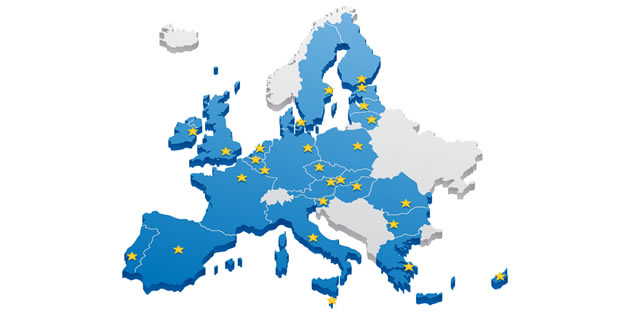The Euro to Polish Zloty (EUR/PLN) was trading at a 3-year low on Thursday as the single currency came under pressure from concerns over Greece and comments made by European Central Bank (ECB) President Mario Draghi.
The Euro to Polish Zloty exchange rate fell to a session low of 4.0010
The Polish Zloty continued its run of gains against the Euro after the Polish central bank chose to leave its benchmark interest rate unchanged at the record low level of 1.5% on Wednesday. Policy makers shrugged off the risks to the Polish economy from the strengthening Zloty. The decision was widely expected by economists.
In March, the central bank slashed rates by 50 basis points over fears that the faltering Eurozone would negatively affect the domestic economy. This month however there are signs that the single currency region is improving. Combined with the rate cut and improving labour conditions the bank chose to leave rates unchanged. Policy makers also said that it was unlikely that talk of more easing measures being introduced will occur in the near future.
‘The recent Zloty advance isn’t a surprise. We have a free-floating currency, so its rise and fall are natural. It would be unnatural and not serious to go back to cutting interest rates,’ said Bank of Poland governor Marek Belka in a press conference, which followed the rate decision.
Polish Data released on Wednesday showed that consumer prices fell 1.5% on a year-on-year basis in March. The fall was more severe than the 1.3% fall predicted by economists. Prices, however, rose by 0.2% from February, broadly in line with economists’ predictions.
Also released was trade balance data, which came in better than forecast. The nation’s surplus rose to €783 million, below the preceding months revised €937 million but better than the €4.1 million expected.
The Pound Sterling to Polish Zloty Exchange Rate Reached a Session High of 5.6233
Against the Pound Sterling, the Polish Zloty weakened as the UK currency was supported by positive house price data and expectations that Friday’s UK employment data will come in strongly.
The Euro was under pressure on Thursday as comments made by European Central Bank President Mario Draghi weighed. The central bank left interest rates unchanged as expected but the Euro weakened nonetheless after Draghi said in his monthly press conference that the recent signs of recovery in the Eurozone were unlikely to cause the bank to scale back its quantitative easing programme. He also played down concerns that the bank will struggle to find enough Euro bonds to buy.
Also weighing upon the Euro are concerns over Greece. The indebted nation had its credit rating cut by Standard & Poor’s as the negotiations between Athens and its creditors are expected to drag on.
The left-wing Syriza government is negotiating with the International Monetary Fund (IMF) and its Eurozone partners in an attempt to lessen the burden of its debt repayments. A €750m ($800m; £540m) payment is due on 12 May, but the government will struggle to make it.
Greece must also deliver economic reform plans to Brussels by April 24 or risk not receiving much needed bailout funds. If the plans are rejected then Greece is likely to default.



